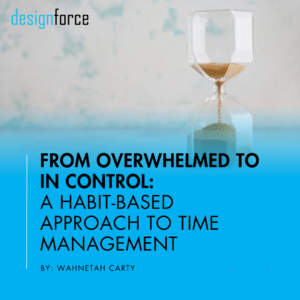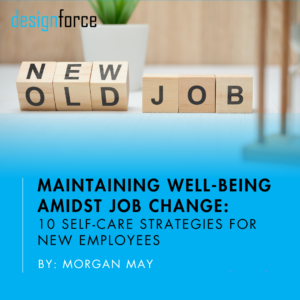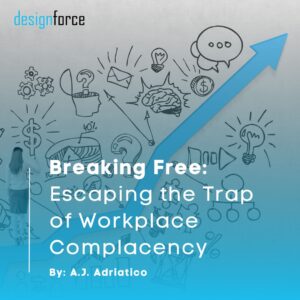
You passed up the early morning meeting with your boss that ends up landing the biggest client your firm has ever had.
You screened the call that told you you’ve just won the lottery.
You’re one of the people who passed on J.K. Rowling because who would want to read about wizards, am I right?
We’re always told to be open to new opportunities but when fate or life presents us with one, we’re very rarely receptive to that information. How can we curb the skepticism we usually meet new information with? In our second “Psychology of” article, we’re going to do a deep dive into our apprehensions regarding new information and the importance of openness in our professional (and personal) lives.
As a Career Consultant, I have come across all kinds of reasons for why people are apprehensive to receive new information. Here are some of the top reasons that we have received and my take on the situation:
Number one: Passive vs. Active Position in the Marketplace
What it looks like: “I am happy where I am; therefore, I’m not looking.”
Well, that’s great! It’s just important to keep in mind that we don’t have to be unhappy for the next thing to be even better. It’s also important to note that taking a meeting doesn’t mean you have to make a move, or should make a move. Take the meeting to gather information about the marketplace. The best career choices are the most informed ones. The right move for you at this moment might be to stay exactly where you are.
Number two: Don’t talk to strangers.
What it looks like: “I don’t know you, why would I talk to you about my career?”
This misconception is a very understandable one. Our careers feel like a personal subject, one that can be uncomfortable to talk about – especially with a stranger. However, every friend, mentor, boss, and colleague began as a stranger. So, take the few minutes to start building a relationship. Have an introductory call, learn more about the person contacting you, and share something about yourself. It is completely appropriate and encouraged to gather as much information as possible about both the person and the position. Take the opportunity to form that relationship. You’ll never know if you don’t take the call.
Number three: Perception of Access to Data/Biased Information
What it looks like: “I have been in this marketplace for so long. I know what’s out there, and I am not interested.”
Odds are, your job is not to keep track of the marketplace. However, it is the job of someone like me. There is a skew in data visibility that leads many of us to believe that we have a full understanding of the marketplace. However, the most available sources of information are going to be inherently biased; whether it is coming from a parent, coworker, mentor, or internet site. The fact is, every person has a different experience and perception of events. We consult Yelp to gather thousands of data points before choosing a restaurant, why would we not do that for our career? Your career is too important to solely leave up to the opinion of others, even ours. Acquiring as much information as possible is paramount in making an educated decision. We don’t know what we don’t know.
Number four: A Bad Experience
What it looks like: “I’ve had a bad experience and been burned before, I’m never doing this again.”
Just because you went on one bad date doesn’t mean that the next date is going to be exactly the same. Same goes for your professional relationships. Not every firm, organization, or interview is going to be the same as the last. It’s worth putting yourself back in the game.
So, what’s the psychology here? By making the conscious decision of being open to hearing out others and the opportunities that they can offer, we can train our brains to be more receptive in other circumstances. Cognitive Behavioral Therapy (CBT) is based on research that shows the way you think about yourself and your circumstances dictates the physical structure of your brain (aka, a new way of thinking literally rewires your brain). Pessimistic thoughts yield negative results and make us less effective in what we do. Positive and realistic thoughts yield positive results and make us more resilient. The degree of openness by which we conduct ourselves also has an effect on our brains. By taking the time to slow down and consider what others have to say, it gives us a chance to reconnect to the fact that there is a world outside of just ourselves and our micro professional world. We become better able to process the information we receive (positive and negative) and become stronger team members and leaders because of it.
Some positive takeaways from always leaving your line in the water:
- New career opportunity! Not every opportunity is the perfect fit, but one of them could be. Then look at that; you just landed your next big thing.
- More peace at work. From openness comes tolerance, from tolerance comes less stress. We have all had a difficult coworker or boss at some point that may not have been the best at hearing us out. Or perhaps we, ourselves, have been that difficult coworker. By being open to hearing new opportunities we are being open to hearing a new perspective – and perhaps realizing another way might be better. That mental flexibility and agility allows us to be more resilient in our personal and professional lives. Whether something goes right or awry, we can be confident that we can handle it with an open mind.
- Expanding your network. The opportunity might not be right, but the person could be. We at designforce fully believe in the power of networking. The further your web spreads the more knowledge you’ll be able to gain. So I say, always take the phone call. They might be the person you need five years from now, or the person your best friend needs right now.
No closed doors. Line always in the water. Be open to new information.
Still not sure? Talk to your career counselor. Don’t have one? I know a few good ones.

Related Posts
Let's learn together.
Stay inspired and in the know on all things A|E|C.
Sign up for our monthly newsletter.










